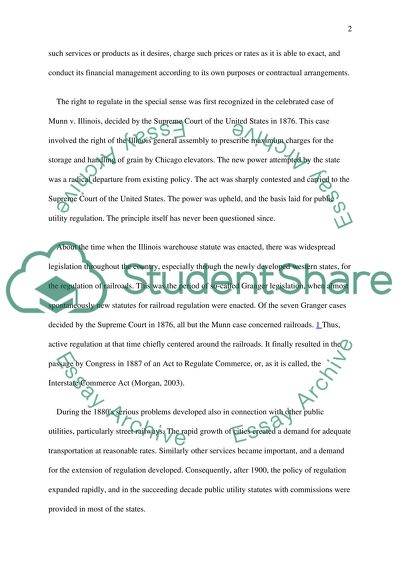Cite this document
(“Regultion of Public Utilities Essay Example | Topics and Well Written Essays - 3250 words”, n.d.)
Retrieved from https://studentshare.org/politics/1508901-regultion-of-public-utilities
Retrieved from https://studentshare.org/politics/1508901-regultion-of-public-utilities
(Regultion of Public Utilities Essay Example | Topics and Well Written Essays - 3250 Words)
https://studentshare.org/politics/1508901-regultion-of-public-utilities.
https://studentshare.org/politics/1508901-regultion-of-public-utilities.
“Regultion of Public Utilities Essay Example | Topics and Well Written Essays - 3250 Words”, n.d. https://studentshare.org/politics/1508901-regultion-of-public-utilities.


